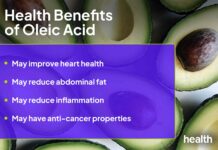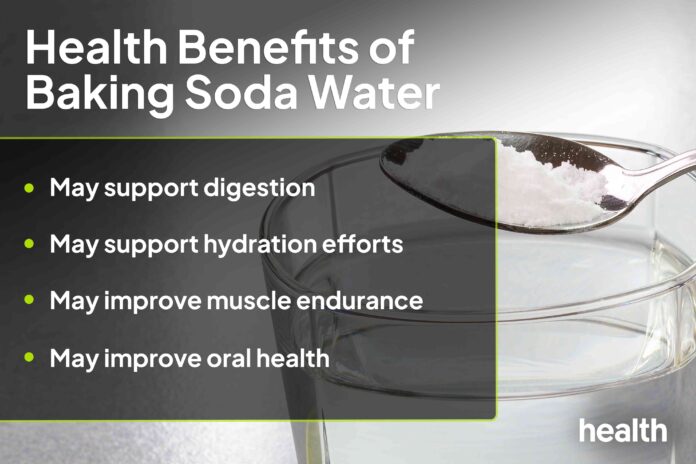Baking soda water, sometimes called alkaline water, is gaining popularity as a potential health drink. While it’s often touted as a digestive aid and hydration booster, understanding its true effects requires looking beyond the hype.
Potential Perks: Digestion and Hydration
The main claim for baking soda water lies in its ability to soothe digestion. This is likely due to its alkaline nature; by neutralizing excess stomach acid, it can offer relief from heartburn, similar to other popular antacids. However, relying solely on baking soda water for digestive issues isn’t recommended without consulting a doctor. Overuse could disrupt the body’s natural digestive balance and lead to other problems.
Baking soda water is also proposed as an effective hydration aid. It contains sodium, which can help replenish electrolytes lost through sweating or dehydration. Research even suggests that baking soda may enhance water absorption in the gut, making it more efficiently utilized by the body. This could be particularly beneficial for athletes and people living in hot climates, but moderation and medical guidance are still crucial.
Muscle Performance and Oral Health Claims
Some studies suggest that baking soda water might improve muscle endurance during exercise. Sodium bicarbonate, consumed in specific doses (0.2-0.5 grams per kilogram of body weight), appears to enhance performance in activities like cycling and running. This benefit is thought to stem from its ability to buffer lactic acid buildup, a key contributor to muscle fatigue during intense workouts. However, more research is needed to fully understand this effect.
Baking soda’s abrasive quality makes it a common ingredient in toothpaste for removing plaque and controlling gingivitis. While direct evidence on baking soda water’s impact on oral health is limited, its ability to neutralize mouth acidity suggests potential benefits. Nonetheless, remember that baking soda water shouldn’t replace regular brushing and flossing, as excessive use could erode tooth enamel.
Nutritional Profile and Potential Downsides
Despite the proposed health advantages, baking soda water itself offers minimal nutritional value. It contains negligible amounts of fat, carbohydrates, protein, or fiber. The primary components are sodium bicarbonate (baking soda) and ash or sodium carbonate. While this means it’s calorie-free, its main effect comes from its mineral content, particularly sodium.
The potential risks associated with baking soda water consumption shouldn’t be overlooked. Common side effects include nausea, vomiting, bloating, and stomach pain, often due to the body adjusting to the high alkalinity. These issues can sometimes be mitigated by carefully controlling dosage, timing, and combining it with a high-carbohydrate meal.
Rarely, consuming very large amounts of baking soda can lead to gastric rupture—a serious condition requiring immediate medical attention. This happens when the reaction between baking soda and stomach acid creates excessive gas buildup within the stomach. Excessive intake can also disrupt electrolyte balance, potentially leading to metabolic acidosis (overacidity in the body) and kidney damage.
Who Should Be Cautious?
Because research on long-term effects is limited, baking soda water might be particularly risky for children, pregnant women, and nursing mothers. Its fluid retention properties could pose problems during these sensitive periods.
Individuals with heart disease need to use caution due to baking soda’s high sodium content. It may also interact with certain medications like antibiotics, making it unsuitable for people with pre-existing medical conditions like heart or kidney disease.
The Bottom Line: Moderation and Medical Advice Are Key
While the potential benefits of baking soda water are intriguing, they shouldn’t be taken as a guaranteed health solution. More research is needed to fully understand its long-term effects and safety profile. Consulting your doctor or registered dietitian before adding baking soda water to your routine is essential, especially if you have any underlying health conditions.




















